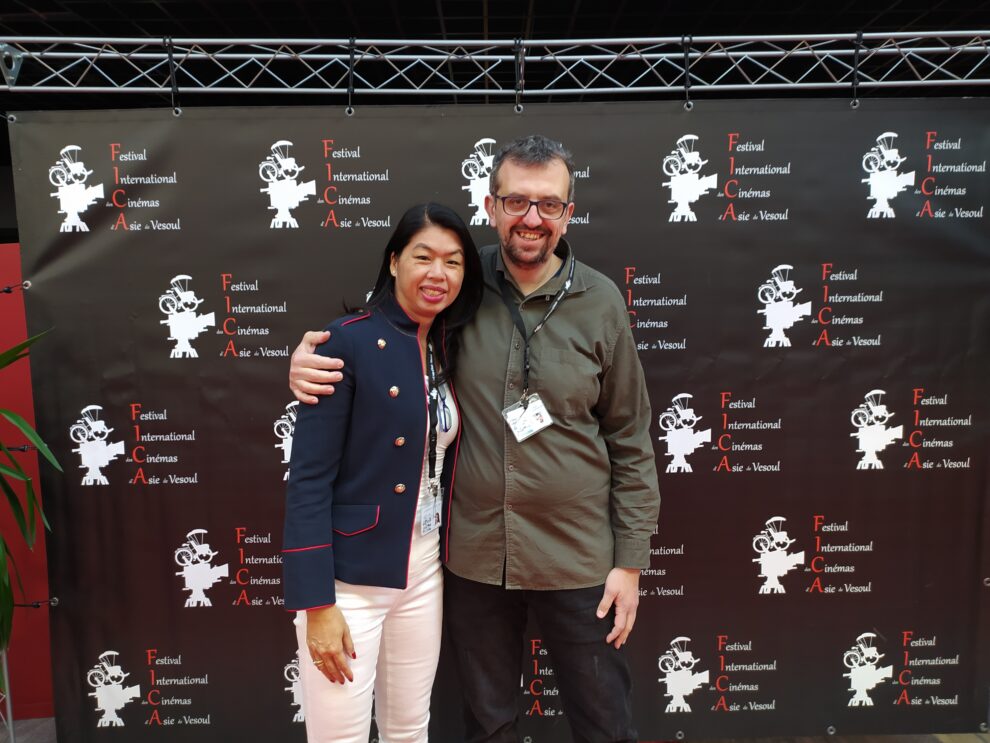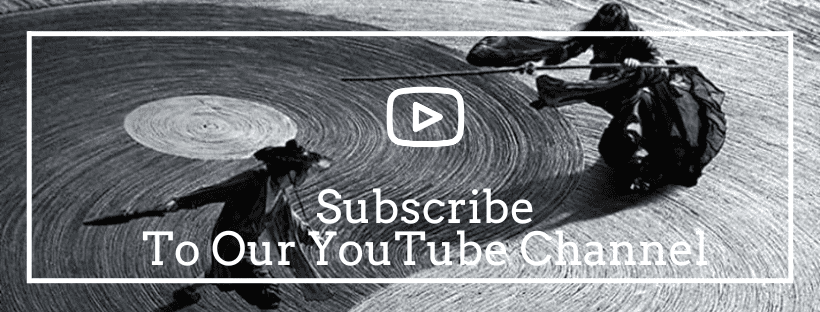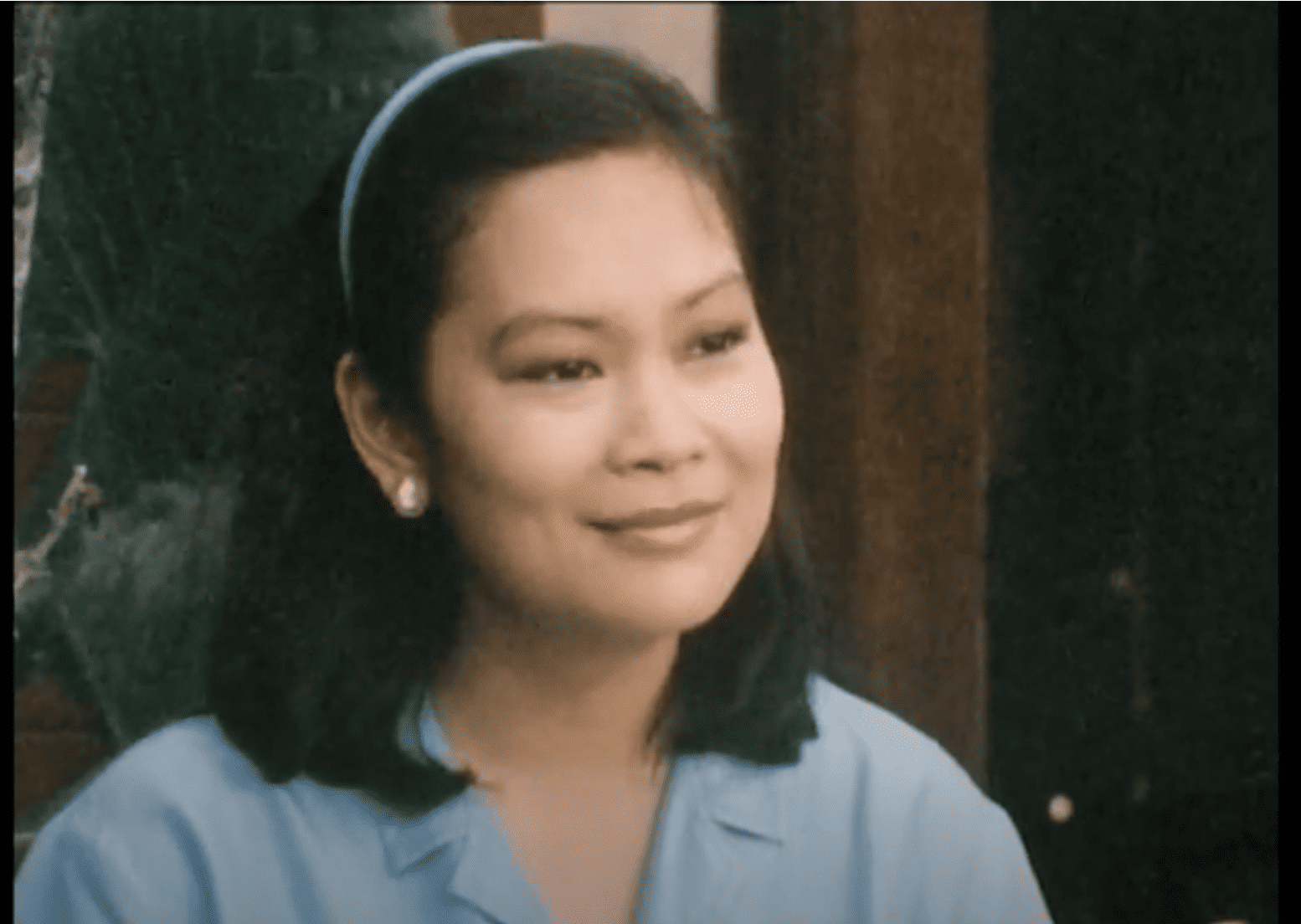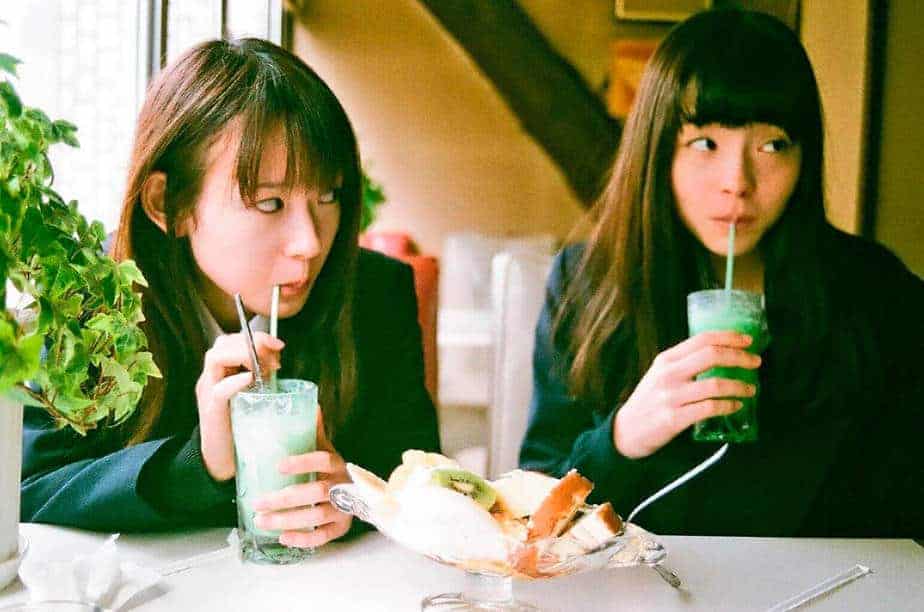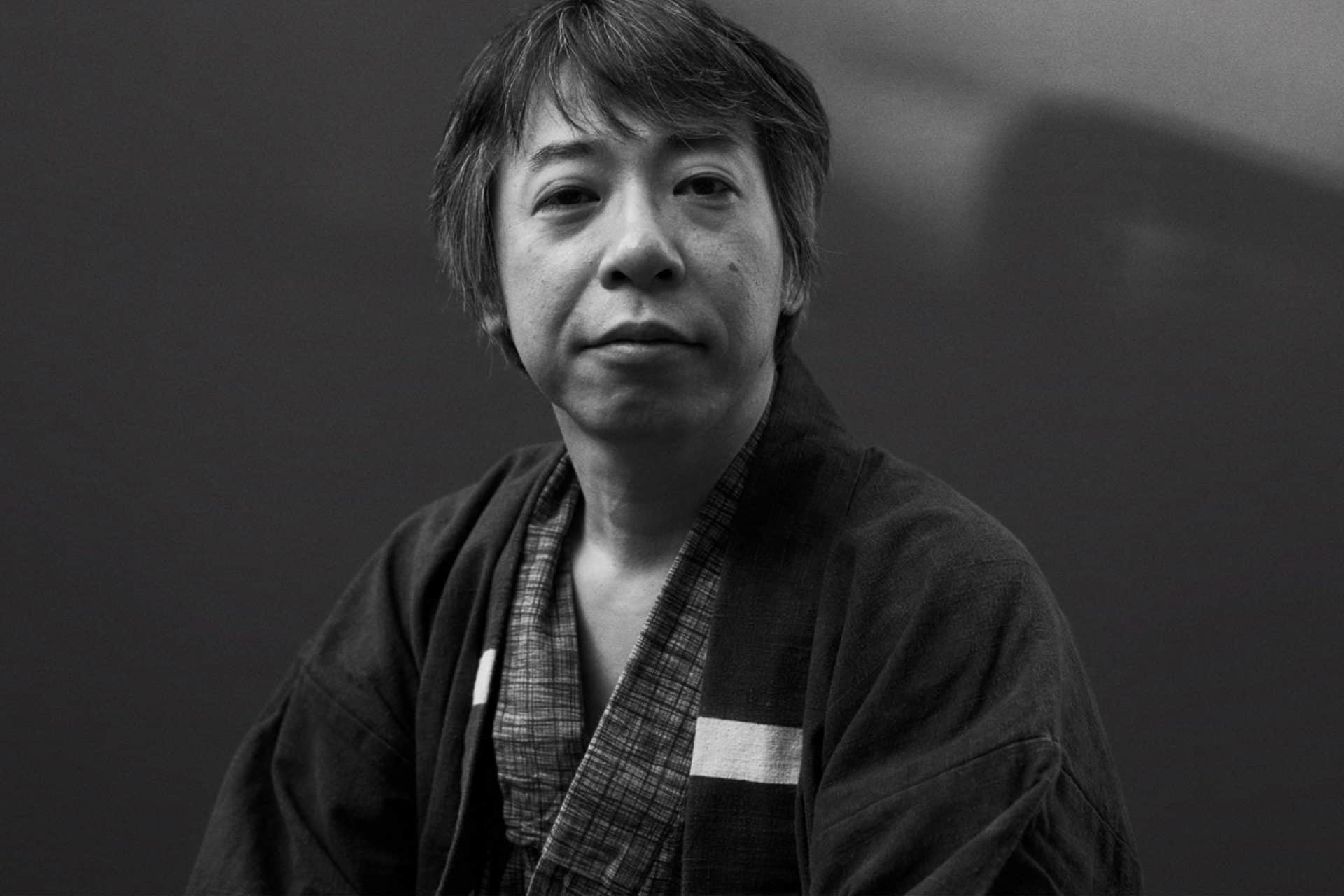Emily J Hoe is the Executive Director of the Singapore International Film Festival (SGIFF), Singapore's oldest and largest film festival. It focuses on independent cinema from Singapore, Southeast Asia and Asia, and champions emerging voices from the region. In addition to public festival events, SGIFF organizes Film Academy programs for industry and students. Previously, she held management positions at the Esplanade.
On the occasion of her presence in the International Jury at FICA Vesoul, we speak with her about the path that led her to the festival, the organization, the programming, COVID and its impact, and many other topics.
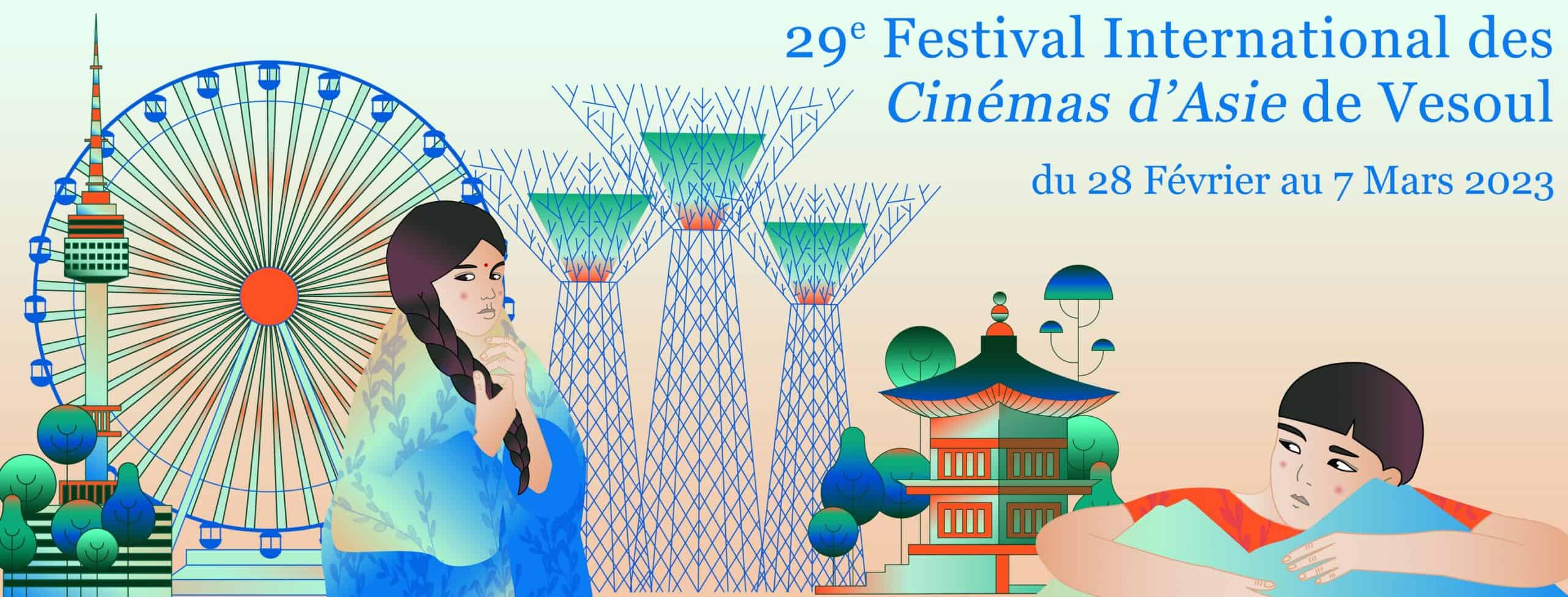
How did you go from Australia to running a film festival in Singapore?
It's not a straight line. Actually no, my life is not a straight line. I moved to Singapore almost 25 years ago. I've only been in the arts for the last 15 years. Before that was communications and media, and before that was retail. But it was a good background, because retail is very customer oriented, customer experience oriented. And communications- well everyone needs to communicate.
I started at an independent, multidisciplinary art centre in Singapore. And then the Esplanade. So this is the first role I've had in the arts which is purely dedicated to film. Whereas the first role had a film programme, but it wasn't all film. It was film, dance, theatre, music, everything. That's the short version of my journey to Singapore International Film Festival (SGIFF).
Do you think the fact that you became director of the festival also had something to do with having a background in marketing/retail?
No, but I mean (there were) transferable skill sets: retail, customer experience, and communication, which is absolutely key. Which also helps as a spokesperson for the festival, and being able to articulate our key messages. It wasn't a prerequisite, but it certainly helps to have a view of how different art forms can interconnect, and not even art forms, just different groups of audiences can interconnect and see how we can bridge that through film.
How long have you been with the festival?
I started in April 2020. So, my 1st day was picking up my computer. 2nd day was (COVID) lockdown. 3rd day, schools closed.
So in your first year, did the festival happen?
It did. The festival takes place from the end of November to the start of December. So in 2020, we had 65 screenings in person but restricted. And we had 65 titles online. But all of the film academy programmes were hybrid. In 2021, we did all screenings in-person, but still (with) social distancing. We had international guests, there were 9. Which was very complicated.
You had to have specific vaccines right?
Yea, and then all the travel requirements kept changing. So it was actually very difficult to bring people in. But we had 9, so (we were) very happy with that. I remember Kim Young Woo and Chalida (Uabumrungjit), they were two of our guests. We haven't seen each other in so long because they haven't been traveling, and they usually see each other during festivals. So it's nice to be able to at least bring a small group of people together. During that year, we had movie openings, but the audience was in groups of 5. It wasn't quite the same.
The last edition, which was the 33rd edition, we had the red carpet, the proper opening, no social distancing. We brought in a lot more guests, and then guests decided that they would come. Industry people would just come to Singapore because they wanted to be part of the industry networking. So everything was in person.
At the same time, there are things we've learned from COVID, and how to work (with it), so you take the good parts from it. If you have Q&As with filmmakers, and someone can't be in Singapore, then you just zoom them in. You have them on the big screen, you can do normal Q&As with someone who just happens to be zoomed in.
How would you describe the festival after COVID?
We will continue with the full festival experience, like last year. We changed and tweaked some things, some of the programme sections. Our Producer's Network (APN) went from (targeting) Southeast Asia to Asia. We tweaked the Youth Critic's Programme (YCP) a little bit, so it's no longer the Youth Jury & Critics Programme (YJCP). Now it's just full steam, back to normal.
And financially?
Last year we were hoping that things would go back to normal from a business perspective, because we're also a charity. That donations would come back, because COVID was a bit difficult. But then you have the global economy that's gone this way. So it wasn't as easy as we would've liked. Again, this year, the outlook from an economic perspective is not great. It's patchy. I think there's a lot of uncertainty. When you have that uncertainty it's hard to predict what will happen, from a consumer and also from a business perspective.

And audience-wise? Have they returned, would you say?
No. There were a lot of events that were happening, because everyone could hold their events. So that's business events, weddings, other art and cultural events, and concerts came back. There was a lot of competition for being at events. So that obviously was difficult. And then, people were traveling. So you get a lot of people that are missing. So we felt those two instances during the festival.
Tell me more about the programme. How does the programming happen?
We have a programme team with Thong Kay Wee, the programme director. With his team, what he has done since he's started is to break down the Asian Focus and World Cinema to quite different programme sections. Now we have Standpoint, which is for films that take particular perspectives on an issue that is current to us.
As a festival, we've moved away from the geographical sectioning, so another section would be for filmmakers who have had festival buzz across the rest of the year. We have that advantage because we're at the end of the year, so we have the view of what has happened. It's kind of, almost a wrap-up?
Of the best movies of the year. That's good to have.
However, because of the timing, since we have to get the materials, and then they have to go in for rating, we cannot consider some of the films of the festivals that take place later in the year, because it might be too tight for our festival. But we try.
It's a little more thematic in a way, with the programmes. We have our 2 competition sections: Asian features and Southeast Asian shorts. I can't remember the numbers on the top of my head, but it was maybe around 1,600-1,700 submissions, that got whittled down to 9 films for Asian Feature Film Competition and 17 for the Southeast Asian Short Film Competition out of all the submissions we received. The programme team has to watch everything, and then it's all curated and discussed, and then distilled again, until we come up with those 2 competition shortlists for the sections.
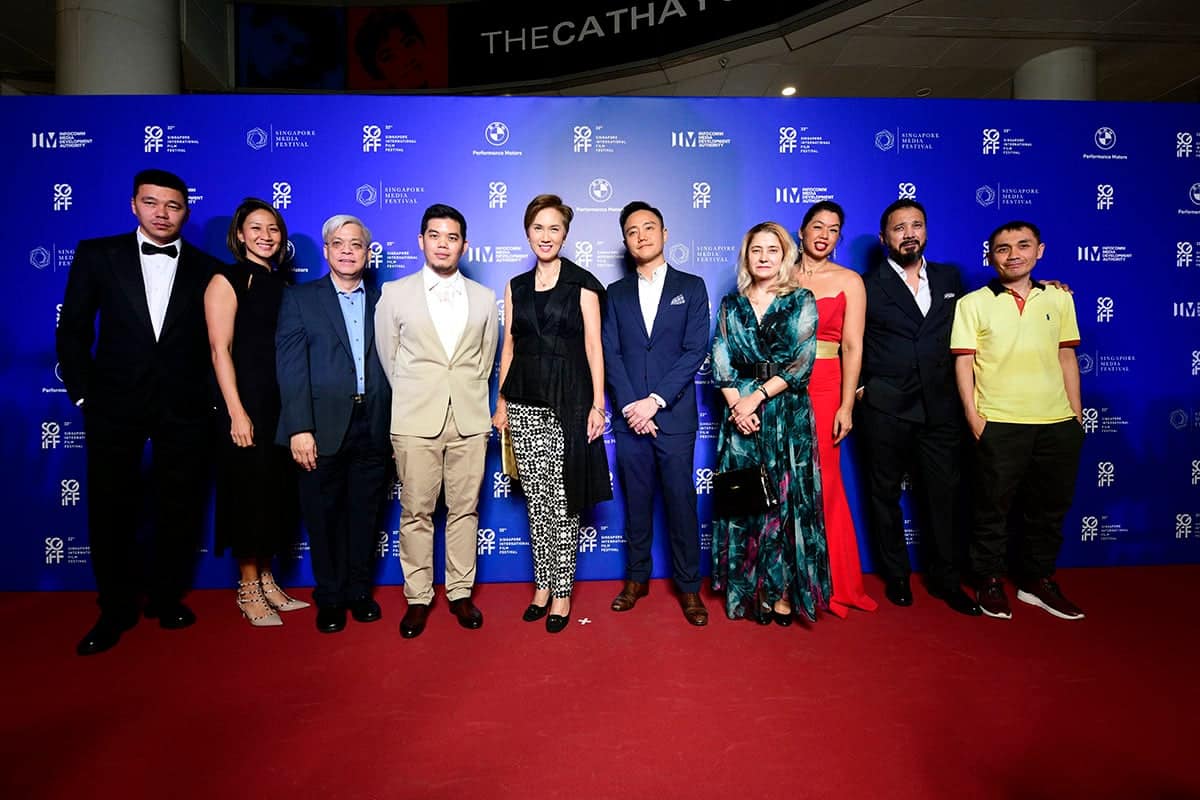
How many members are there in the core team?
Right now, when we're not in festival mode, we have 6. And that's 2 on the programme. And then we grow as the year progresses. At the peak, without volunteers, we're maybe at 25? Not all full-time, some are project style.
What about local cinema? Are there many movies produced now in Singapore?
Not a huge amount. If you look at the list of Singaporean films, in 2014, there were maybe just over 30. COVID has made a difference. So I think it's been maybe 15, maybe 20. So it has dropped over the last few years. But there's the focus on co-productions as well. So we have our Singapore Panorama section, which is features and shorts. There's a good variety because we have both of those, which need to be curated as well.
How would you describe the state of Singapore's film industry at the moment?
I think there's still some “recovery” from COVID, productions that got stalled. I think that will work itself out. I think Singapore cinema is still going from strength to strength, and I would probably say that about Southeast Asian cinema as well. We would probably hope for more representation outside of the Asian region. That, I think, will continue to grow.
This is my perspective, we've ridden the J-wave, and now we're in the K-wave. Which means that there seems to be very much a focus on our part of the world. And I don't see that stopping. And also with consumer behaviour, you know you've got all those streaming platforms, but within those platforms, people are getting more used to watching onscreen subtitles. It's the consumer behaviour that's changing also. Which means you're suddenly opening up the world to a huge diversity. But obviously there's still the quality of the storytelling, and the quality of the production, all those things. I think Asia is going (from) strength to strength.
And what about censorship?
We still have to go through all the normal processes that a commercial distributor would need to do. We've got a pretty good relationship, so we will have conversations with the people that will be doing the ratings. So if they have any questions, they will call up the team, or email. It's not a case of, they say something and we just have to obey, there can be discussion.
Would you say in general that the government helps the festival?
We get funding from the government. So going back to your question on the financial state: Without the government funding, it would be problematic for us. So that growth in either individual donations or corporate support is very important for us.
How much of the budget is made from the audience, the ticket sales?
Very small.
What can you share about the upcoming edition?
There are not going to be any huge, stellar changes. More or less the programme sections will stay. The tweaks that we made last year, to APN and YCP, we just need to let that settle. But I think we're quite happy with the changes that we've made.
We're trying to look at how we can reach out to new audiences. Last year, we had a community screening out in the heartlands of Singapore. We're going to try and do something like that again. Last year it happened to be on National Day, so it was Singaporean films, but we also know that for anyone that's being introduced to a new genre, the general population may not know about Singaporean filmmakers. So they need to be aware and have an awareness of it multiple times before it actually comes into their normal thought process. Singapore is very much about mainstream cinema, (the festival) is very much on the sidelines of mainstream.
But we're also expanding our student programmes. This is something that happens in the arts, where the earlier you can get to students and kids, expose them to arts and culture, then it's more likely that they will continue that behaviour and that appreciation as they get older. Not everyone, but you're giving them a better chance.
What was your best and worst moment so far?
The worst is quite easy. The worst is COVID. Because I started, day 1, pick up my laptop and go see the office. I think I met one member of the team, who I think I actually already knew. Day 2, lockdown. Day 3, Singapore school lockdown. That was the start.
I think the main part of COVID was the changes, and more changes, and then different changes. At one point, I had contingency Plan A, B, C. And then contingency Plan Z, which I literally put up on a slide, as the zombie apocalypse.
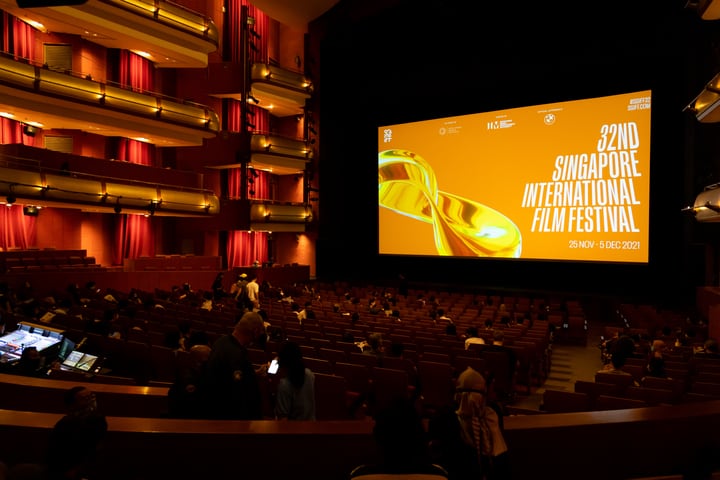
What was Plan Z?
Where we for some reason had no festival whatsoever. We were worried that, if there weren't enough submissions, because there would be such a small number of productions that got to completion. But then everything else that was supposed to complete all got delayed. So then if you're left with a very small number, you're not going to get the breadth of diversity and potentially, quality.
And then if you have to go online only, you have filmmakers, which we absolutely respect, who have made a film to be seen on a big cinema screen. To be experienced with the sound, and the whole environment. And they may not want to have their films screened online. So that then reduces things again. So then you create curating based on filmmakers who are open to having it only online. So it's far from the ideal story. But that wasn't the worst, that was just the by-product of our fears, of what potentially could happen.
I think the worst is having so many changes, and so many back-up plans of a back-up plan of a back-up plan, and to have that for 2020, 2021. In 2022, definitely there was the momentum for things to open up, so that did make things easier in a way, but then replaced by other changes that were also part of the opening up. Like we were fighting with venue demand, from corporates and weddings and a whole bunch of other things. So I think it was the disruptive nature that didn't give us any certainty of what we could do. And then it kept changing, making it very hard to plan.
And the best moment?
This is within 2021, so still COVID, and still with restrictions in Singapore. We put on a special screening. It was a Singapore documentary called “Scene Unseen”, on the underground, independent music scene in Singapore. Abdul Nizam had passed away, but there was a group that came together to finish the film. We screened that in the Esplanade, which is the national performing arts centre, in their big theatre, which has 1,800 seats or so. But we had restrictions, so we couldn't put 1,800 people there.
So we screened that, and then we followed up with a mini gig. The Oddfellows was the first band, and after that was the Obstacle Upsurge. So The Oddfellows, they're very iconic as an indie band. And Obstacle Upsurge was kind of Singapore's first all-female punk band. This was in the period of time when music gigs just weren't happening, and they'd been thrown off stage for so long. So to have these 2 quite iconic, very independent bands onstage, and on the national performing arts stage. As part of a film festival, where you bring music and film together, that was just amazing.
Did you attend the festival before you started working there?
Occasionally I did. But the films I wanted to see were always sold out.
So you went for the popular films.
I remember very distinctly, there was a Singapore documentary called “Unteachable”. It follows a teacher in the Singapore education system. They're moving away from this system, but it was streamed so that the ‘smart' kids, the ‘not so smart' kids (were separated). So they went into a school, and there was a researcher who went into the ‘lowest' of the streams to try and help them in their attitude to learning. These kids had a reputation of “not going to go anywhere” and were told they were going to be a bunch of failures, which is awful.
Because I didn't grow up in that education system, I really wanted to see that film to see what it was like. At that stage I didn't have children. So I was really just interested to see what would come out of a documentary like that. So 1st screening sold out. 2nd screening sold out. They put on a 3rd screening but by that time I had to leave the country to go on a trip so I didn't get to see it.
So you never got to see it?
I did, last year. Because we put together a programme, actually for teachers. And this was for a bunch of about 30 teachers. So we screened the film, and then we had a facilitated dialogue about that film. And it's interesting because they're all teachers within that system.
The main language in Singapore is English?
There are 4 main languages. English, Mandarin, Bahasa Melayu and Tamil. And it used to be that there would be Chinese language schools, and English language schools. Now it's all English.
So the documentary isn't something that needs to be translated, it's all in English?
Yes, all in English. So the business language is in English.
Where do you see yourself in 3 years?
There are things that I would love to be able to put into place for the festival. Sort of the 5-year plan. I probably won't go into detail of what they are but it would be great if that could actually be put into place. It would make a big difference to the festival, throughout the year, and also during the festival itself. Because at the moment, we've got an office and then we book venues as and when we need them.
How many venues are there?
We have 6 different screening venues, in the central area, but you still have to move around a bit.
transcription by Renee Ng


